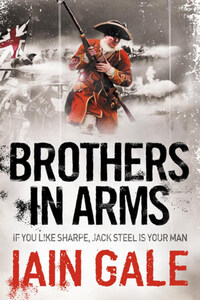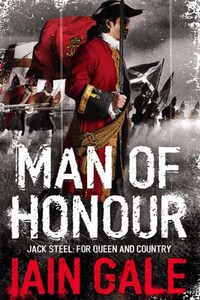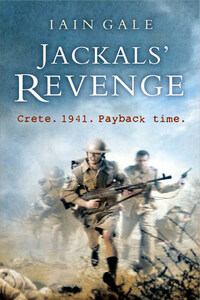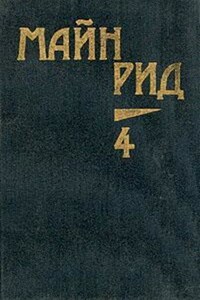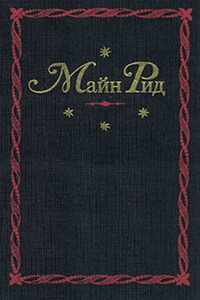High on the crest of a hill, above the little Belgian village of Eename, barely fifteen miles from the border with France, a tall rider in the distinctive, scarlet coat of an English staff officer, raised his broad frame high up in his stirrups and craned forward over the neck of his mount. Putting a spyglass to his eye, he gazed northwards across the verdant summer countryside and prayed for a miracle and with it a glimpse of his destiny.
Had they been looking closely, any one of the small group of horsemen who had accompanied him to his hilltop vantage point might have noticed the small smile that played across his features and in that instant would have known that they had found their goal.
William, first Earl of Cadogan, Chief of Staff and Quartermaster General to the army of his Grace the Duke of Marlboroough, had been in the saddle since one o’clock that morning, riding at the head of sixteen battalions of infantry and eight squadrons of cavalry. He had marched his little force at double time – some three miles to the hour – the thirteen miles from the town of Lessines, just to the north of Ath, to this spot. Below him and a little away to his left lay the town of Oudenarde, waking from its gentle slumbers, with its tall church, fanciful baroque hotel de ville and spreading, star-shaped fort. And pausing now, he wondered whether he had found what he and his advance column had been searching for. Through his telescope, even in the early light and clearing mists, Cadogan could clearly make out on the opposite slope, the small forms of men in pale grey coats and black tricorne hats trimmed with yellow lace as they went about the mundane business of an army in camp. French infantry. The advance guard perhaps of a mighty force which until lately had been preparing to lay siege to allied troops in Oudenarde. Clearly, their awareness of the proximity of Marlborough’s allied army had thwarted any such plan and they had moved to a fresh position where they would not themselves become encircled as was so often the case in such a siege. But, from their present behaviour, thought Cadogan, with growing satisfaction, it was clear that they could not believe that Marlborough’s men might be perilously close at hand on this brightening summer morning. And that was precisely what Cadogan and his Commander in Chief had hoped.
The town of Oudenarde lay astride the river Scheldt, inundated with wide-ranging marshland, and the most vital element of Cadogan’s modest force was the pontoon train with its team of skilled engineers: the means by which the great army of 70,000 men, horses and guns that came in his wake was to cross this formidable natural obstacle. But it was not to Oudenarde that Cadogan now turned his attention, but the wide valley of farmland beyond the river traversed by three streams and enclosed by three low hills.
It was as fine a morning as any of them had seen since the start of this campaigning season and the Belgian fields lay bathed in sunshine. It was, Cadogan guessed some time after eight o’clock on the eleventh day of July in the year 1708. And he was determined that this would be a date that would be remembered for evermore. A day that would be told of in England’s schoolrooms for centuries to come. A great day of British victory.
He had his orders. He was to sweep the road from Lessines clear of the enemy and then clear a crossing over the Scheldt. He must lay his five pontoon bridges hard by Oudenarde and form a bridgehead which he would hold until relieved by Marlborough – whenever he might arrive.
He turned to an aide: ‘Cassels, ride back to Colonel Harker and tell him to have his pioneers move down to the river as quickly as he can. He must lay his bridges there’. He pointed towards Oudenarde. ‘Hurry, man. We’ve no time to lose.’
As the young officer rode off, Cadogan looked again at the French on the opposite hill and wondered whether an enemy officer might at that same moment be watching him in a similar way and wondering at his purpose. He knew that the French too were spoiling for a fight. And he was aware that at no time in this war had a victory been so keenly needed by Marlborough as it was now.
It had been a dreadful year, spent mostly in sieges. The Dutch had insisted that it was the only way. Marlborough, Cadogan knew, was powerless without Dutch support. Of course, the Duke had not been idle in the last season. Was he ever? He had struck on a scheme to land Prince Eugene in southern France, at Toulon. It had been a bold plan. Too bold – and had come to nought. Yet for once it had not been the Dutch but their ally the Emperor of Austria himself who had forbidden it. It was said that the Emperor wished to sue for peace with the French. To treat with Louis? Cadogan, like Marlborough had been nonplussed. Certainly, now in its sixth year, this war was draining Europe dry, bathing the continent in blood. And to be sure neither of the English Generals wanted further carnage. But it was clear to any man with even the most modest military knowledge that before the French would accept any terms of armistice, a great victory must be won over them.
